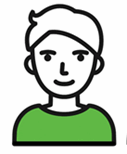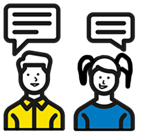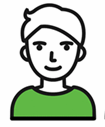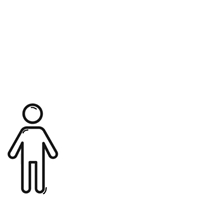Puberty is the word used to describe the physical and emotional changes that happen for boys and girls as they become adults.
 It happens at different times for different children. It usually begins sometime between 9 to 14 years old. Puberty is not a quick process, usually taking around 4 years for the physical changes to complete. The emotional changes often takes much longer.
It happens at different times for different children. It usually begins sometime between 9 to 14 years old. Puberty is not a quick process, usually taking around 4 years for the physical changes to complete. The emotional changes often takes much longer.
Puberty can be a confusing time for young people as there are a lot of changes in the chemicals in the body (hormones) and in the way they think and feel. Finding out about what happens during puberty can help you understand your child better and give you more confidence to support them.
Top Tips
You can help your child get through the physical and emotional challenges that puberty brings. Finding out about what happens for your child during puberty, will help you be prepared for the bumps along the way.
Keep Talking
 Talk to your children from an early age about their minds, bodies and how they work.
Talk to your children from an early age about their minds, bodies and how they work.Practicalities
Rules and Boundaries
Support Independence
Other Things To Think About
Changes In Mood & Feelings
You might notice changes in your child's mood. One minute they might be full of energy and fun, and the next be tired and grumpy.
 You might notice that they are;
You might notice that they are;
These swings in mood during puberty are very common. Occasionally it can be a symptom of a mental health problem.
Young people may experience their first ‘crush’ during puberty. Crushes are very common at this stage. A crush is usually a harmless attraction to someone else. It can be very powerful and confusing. The crush could be on their friend, or sometimes an adult they really admire, like a teacher or a celebrity.
The feelings are strong and very normal. The feelings could be for someone of the opposite sex, or for someone of the same sex. This does not necessarily show what the young person’s sexuality will be in the longer term.
Reassure your child that these feelings are normal. Do not tease your child about this – this person is an important part of their life right now, their feelings are very real.
Adults should be able to be kind, but keep firm boundaries if they discover a young person has a crush on them. If you are worried an adult is taking advantage of your child’s feelings, you should talk to your child and seek further advice if you are worried.
Changes In Skin
 One of the common changes that happens during puberty, is young people start to get spots, blackheads and pimples. This is really difficult for them, as it comes at a time when they are often more self conscious about their appearance. It is because of hormonal changes, not because of dirty skin. However - keeping skin clean will help.
One of the common changes that happens during puberty, is young people start to get spots, blackheads and pimples. This is really difficult for them, as it comes at a time when they are often more self conscious about their appearance. It is because of hormonal changes, not because of dirty skin. However - keeping skin clean will help.
There are many products available to buy to help with skin problems. The best place to get advice at first on what will help your child is your local pharmacist.
Changes In Body Shape
 It is common to see a real change in body shape. In early puberty you may worry your child is putting on weight. Girls especially see an increase in their body fat.
It is common to see a real change in body shape. In early puberty you may worry your child is putting on weight. Girls especially see an increase in their body fat.
If your child is active and eats a wide range of healthy foods it usually settles as they grow taller.
If your child is inactive, or does not eat healthily, this can make it harder for them to keep at a healthy weight. This may be a good time for the whole family to think about being more active, and introducing more healthy foods.
Changes In Hair Growth
 Hormonal changes also mean body hair grows – how much hair, and where it grows varies from person to person. It will grow on faces, underarms and around their private parts.
Hormonal changes also mean body hair grows – how much hair, and where it grows varies from person to person. It will grow on faces, underarms and around their private parts.
There is no ‘right amount of hair’. Remind your child to try not to compare themselves with others. Your child may feel proud of this or they may feel self conscious.
Some young people feel keen to remove the hair – this is down to personal choice.
You can contact the Healthy Child Programme by calling Just One Number on 0300 300 0123 or texting Parentline on 07520 631590. Our opening hours are 8am-6pm Monday-Friday (excluding bank holidays) and 9am-1pm on Saturdays.
If you are 11-19 you can text ChatHealth on 07480 635060 for confidential advice from one of our team.
You can speak to other Norfolk parents and carers by clicking our online community forum below.